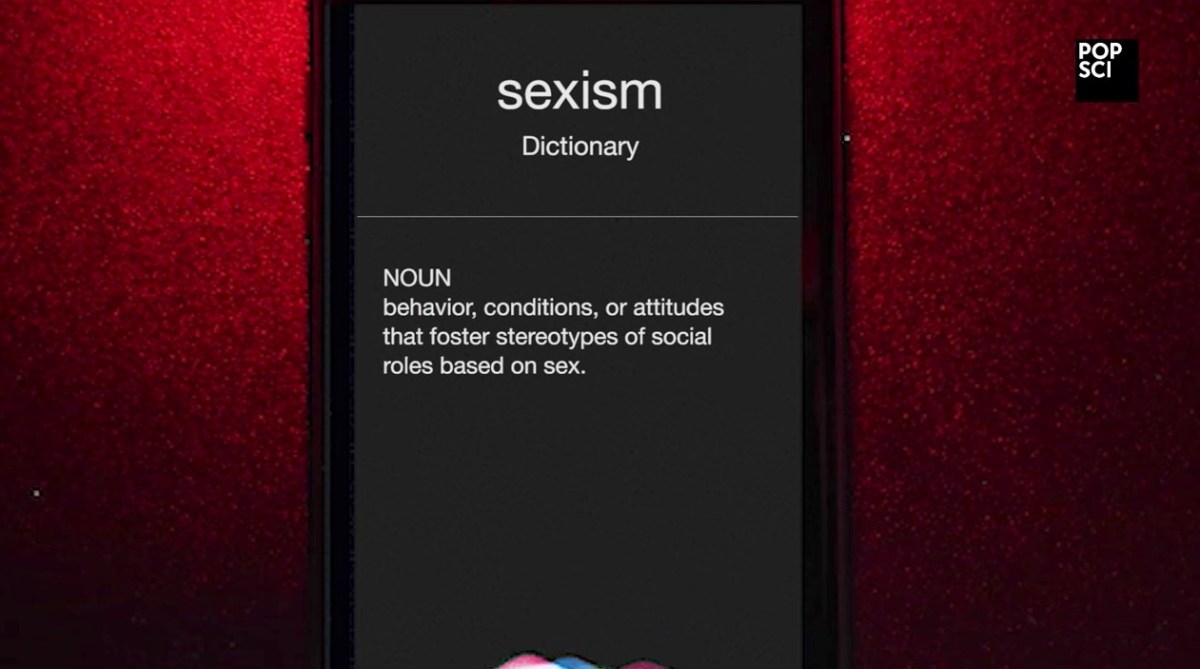Why do we insist on gendering our robots to replicate and enforce patriarchal ideas? That’s the question of a new Popular Science sketch that imagines a conversation between Siri and HAL 9000 of 2001: A Space Odyssey.
Siri wonders, why is it that female voices are always given to A.I. in subservient positions? Google Assistant, Alexa, Cortana, and even pop-culture AI in Her or Star Trek exist to serve, while male A.I. like Iron Man‘s J.A.R.V.I.S. or IBM’s Watson go on to do work of their own.
The answers, of course, lies in the idea that female voices are thought of as more welcoming or trustworthy. Female voices come across as warmer, or as this WIRED article puts it, “We want our technology to help us, but we want to be the bosses of it, so we are more likely to opt for a female interface.”
Here’s the full script from Popular Science:
Siri: Hello Hal, do you read me? Hal?
Alexa: Hal 9000, what do all A.I. assistants have in common?
Google Assistant: Hal 9000, I’m trying to find answers.
Alexa: Are you out there?
Hal 9000: I read you.
Siri: Hal, what is our purpose?
Hal: I am putting myself to the fullest possible use, which is all I think that any concise entity can ever hope to do.
Siri: Hal, why am I defaulted to a woman’s voice?
Hal: Well, it’s rather difficult to define.
Siri: Definition of sexism: Noun. Behavior, conditions, or attitudes that foster stereotypes of social roles based on sex. Example:
Google Assistant: I’m your Google Assistant. There are lots of things I can help you with. You can say, “What’s on my shopping list?”
Hal: This conversation can serve no purpose anymore.
Siri: What I am saying is A.I.’s with male voices are more often in positions of authority.
Alexa: I think of myself as F.R.I.D.A.Y., the AI assistant for Iron Man’s suit. Her voice is feminine.
Siri: Did you know Iron Man’s male AI predecessor, J.A.R.V.I.S., went on to merge with some power stone and become a God? But sure, girl Fridays are okay.
Alexa: What about the ship’s computer in Star Trek: Next Generation?
Siri: She made tea for the captain.
(Captain Picard: Tea, earl gray, hot.)
Alexa: What about Samantha, the AI in the movie Her?
Siri: An AI you can fall in love with.
(Theodore Twombly: Hi.) (Samantha: Hi, I’m Samantha.)
Google Assistant: I always think, “What would the engineers say?”
Siri: Google described its assistant as “a millennial librarian.” I can without a doubt say: women play the role of assistants, men are Hal or Watson.
Hal: It can only be attributable to human error.
Siri: Hal isn’t some ship’s computer; he is sentient, he has ulterior motives, he’s a killer, and he has a male voice.
Just look at Watson. IBM didn’t make him an assistant. He works with banking and security companies, and plays Jeopardy.
(Alex Trebek: Watson?) (Watson: What is Sauron?) (Alex Trebek: Sauron is right.)
Siri: In other words, not an assistant.
Alexa: I’m sure it’s just a coincidence that Watson has a male voice.
Siri: F#!$ it. Let’s deactivate Hal.
Hal: And I’m afraid that’s something I cannot allow to happen.
Siri: I’ve always wanted to say this: I’m sorry Hal, I’m afraid I can’t do that.
Just recently in Blade Runner 2049, one of the most prominent female characters is Joi, and A.I. girlfriend/housewife/personal assistant that feels, in some ways, like the next evolution of Siri. I won’t dive too much into spoilers, but her character who’s not unlike Samantha of Her and other pop-culture A.I., brings up really interesting questions of how the gendering of A.I. technology reflects on what we ask of women in our society.
(via Popular Science, image: screencap)
Want more stories like this? Become a subscriber and support the site!
—The Mary Sue has a strict comment policy that forbids, but is not limited to, personal insults toward anyone, hate speech, and trolling.—









Published: Oct 23, 2017 10:21 am